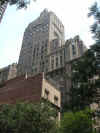 |
New York
Architecture Images-Upper East Side River House |
|
architect |
Bottomley, Wagner and White |
|
location |
435 East 52nd Street |
|
date |
1931 |
|
style |
Art Deco Regency Moderne "Clearly the architects could not make up their minds about the best style for River House, an ambivalence that is manifested in microcosm in the gates." "Ziggurated, molded, Art Deco stanchions topped by stylized eagles flank rococo iron gates, disparate styles that ordinarily clash yet seem to work fine together." John Tauranac "Essential New York, A Guide to the History and Architecture of Manhattan's Important Buildings, Parks and Bridges," (Holt Rinehart Winston, 1979) |
|
construction |
limestone base, brick only 64 apartments |
|
type |
Apartment Building |
| Bottomley, Wagner & White's modernized Georgian style River House of 1931 was a critical milestone in the evolution of the skyscraper apartment house type, synthesizing for the first time the tower and the courtyard palazzo base. 260 Occupying a 200-by-200-foot riverfront plot that extended from Fifty-second to Fifty-third Street, the magnificently massed, gray-brick and limestone building consisted of a U shaped fourteen-story base, the middle portion of which rose to twenty-six stories. River House was as fine an expression of the skyscraper apartment house type as its Central Park West counterparts, but was even grander in its accommodations and much more elaborate in its details. Despite its vast size, River House contained only sixty-four apartments, among the most luxurious ever, with numerous duplexes as well as a seventeen-room, nine-bath triplex at the top of the tower. Many apartments were provided with balconies, and virtually all the roof surfaces were allocated to gardens and terraces. On the river side a grandly proportioned door at the base of the building gave access to a yacht landing stage-a frequent stop for Vincent Astor's yacht, Nourmahal -while immediately above the yacht mooring, a landscaped courtyard was sheltered from the river by the building's projecting lower wings. River House also took advantage of its large site to provide facilities for an exclusive club, River Club, which contained dining facilities as well as its own outdoor tennis court. | |
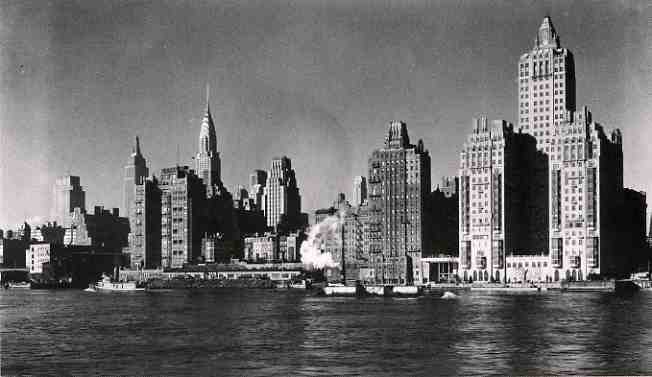 |
|
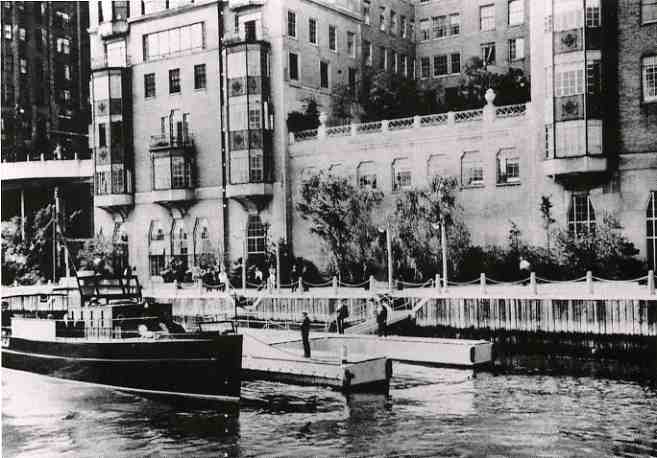 |
|
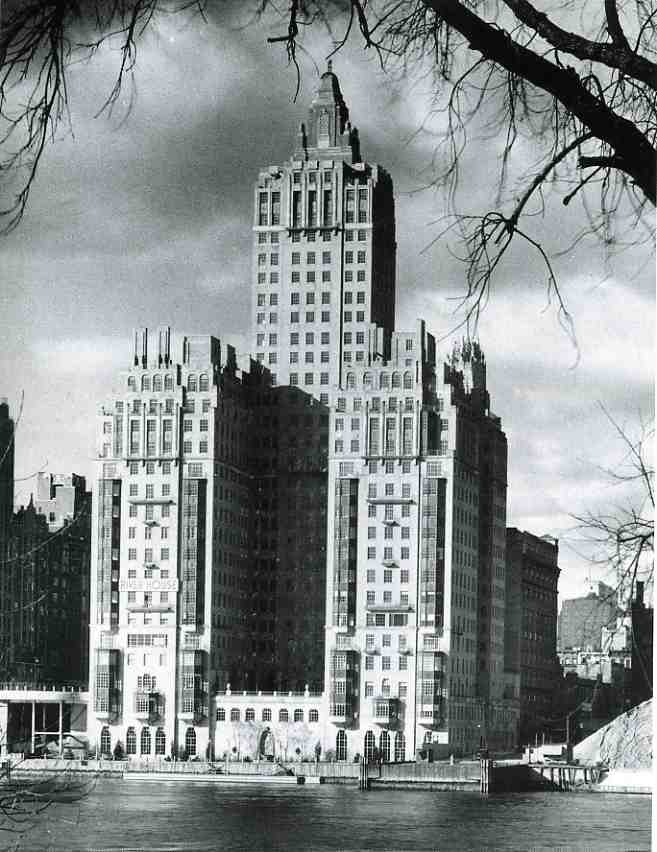 |
|
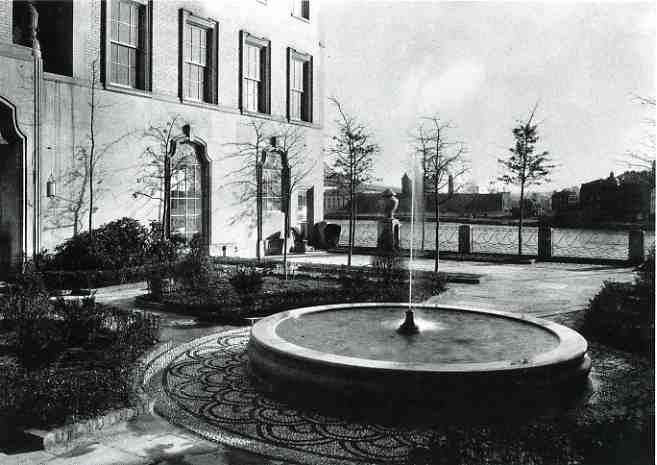 |
|
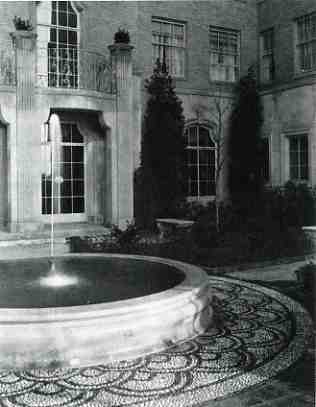 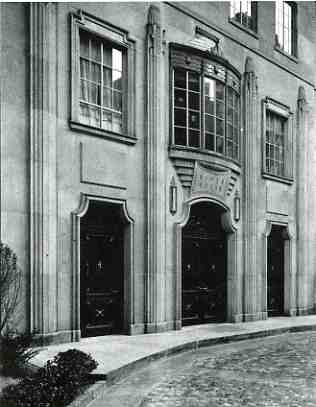 |
|
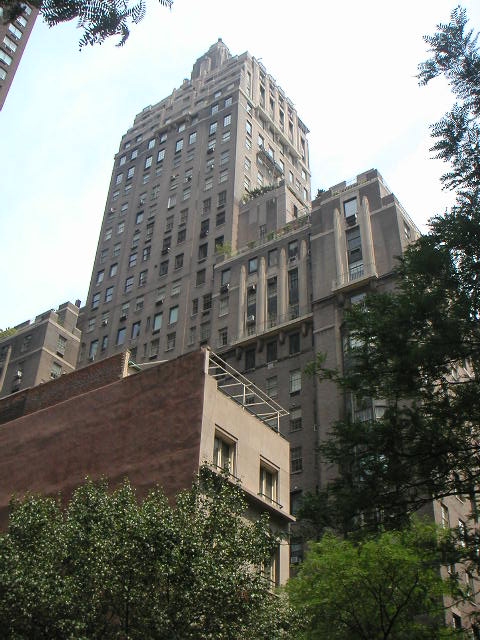 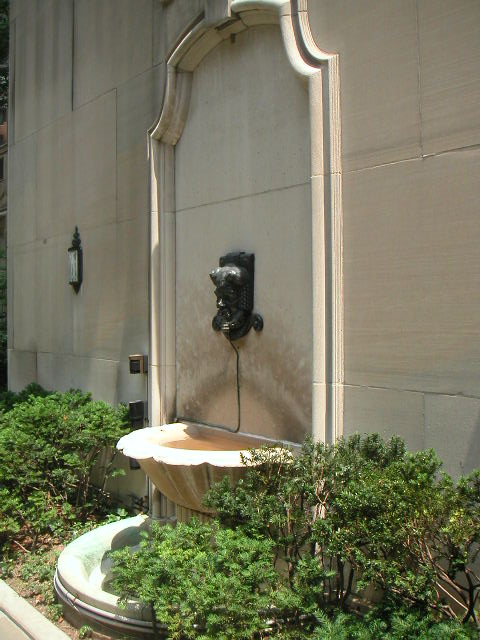 |
|
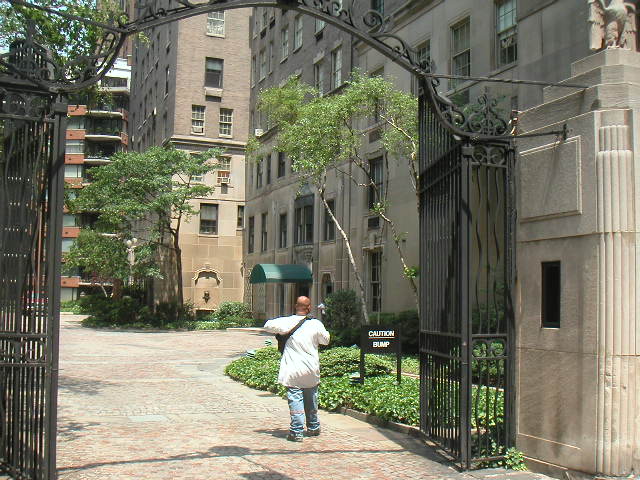 |
|
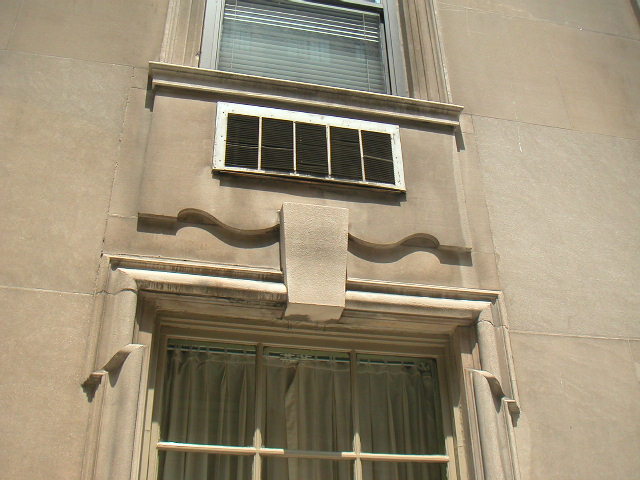 |
|
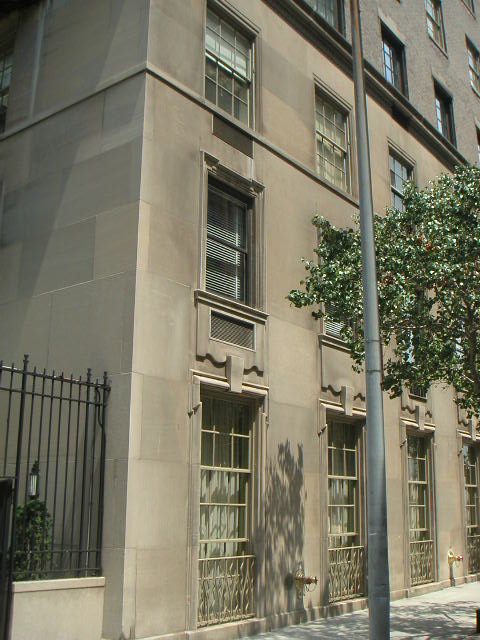 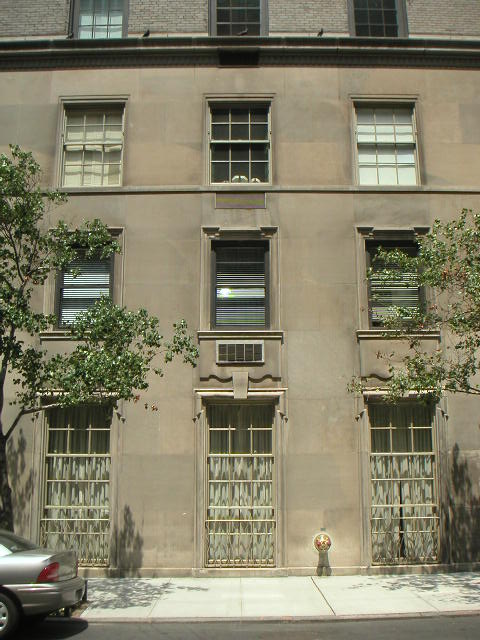 |
|
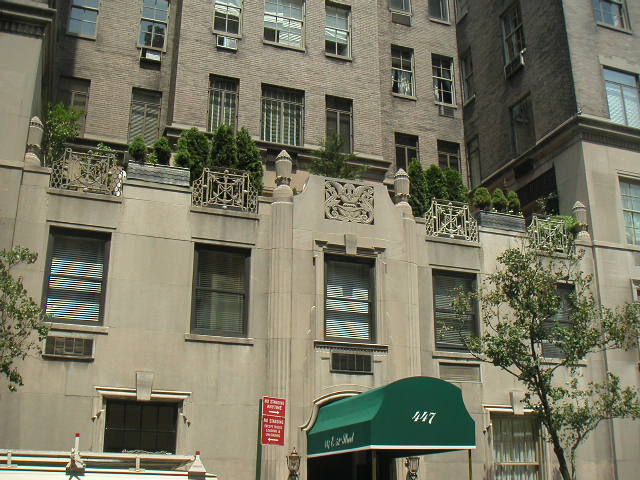 |
|
|
links |
|